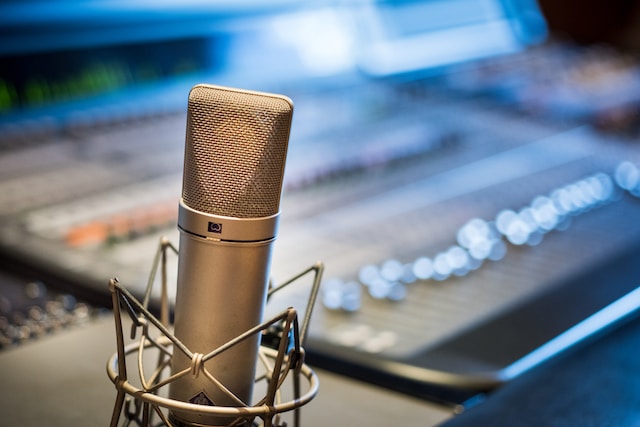Audio production is essential for every audio campaign. Though what may not seem that important to the everyday layman, audio production can really set you apart from your competitors, especially when it comes to voice over audio.
This post will take you through why you should consider audio production for your future voice over projects and the importance of not neglecting it.
What does audio production do?
First, it’s important to know what audio production is, what it’s used for and why it’s important. Audio production, as the name suggests, is the process of producing audio – typically used as an umbrella term for a wider range of tasks.
Whether you’re creating a jingle to help build your brand’s sound identity, adding sound effects to an advert’s backing track, or simple background music. These tasks can include recording, creation of music, editing, mixing and mastering.
The purpose of these extra steps other than recording is so that the audio is ready for distribution among various media and devices, including phones, tablets, laptops and radio.
What is mixing and mastering?
Mixing and mastering is one of the most important steps of audio production. After you initially record your audio, say, with some extra sound effects, as well as a backing track or jingle, the next step is to make sure that the different sound tracks are balanced and easy on the ear.
The process of mixing is to ensure that your voice sounds how it should. An audio engineer will typically play with the tonality of a voice over recording, making sure the pitch is up to par, it’s well compressed and is sitting nicely with the backing track.
Not only this, but also ensuring the track is on the right frequency, getting rid of excess clicking and hissing sound effects that don’t sound quite right, are all part of the mixing process.
Mixing also includes playing with the volumes of all simultaneous tracks, so that the background music doesn’t overpower the voice over audio, the sound effects aren’t too quiet, and everything in between – Essentially setting the stage prior to the mastering process.
Mastering involves a different step, which is typically carried out after the mixing process is complete. Mastering works to process the audio mix into its final form, the step necessary for ensuring the audio is ready for distribution.
Without mastering your audio, there’s no way of perfectly blending all sound tracks into one, you’ll end up with a sound file that has a bunch of different audio files at varying volumes that simply isn’t media-ready.
Why is it important for voice over audio?
Voice overs are used for a wide variety of purposes, over a wide range of platforms. For a voice recording to be “usable” across so many different devices, it needs to be edited to the point where it’s at a certain quality that will deem it usable across these various means.
Mixing and mastering is essential for voice-over audio because you’re preparing the audio to be broadcasted on various platforms.
Say you have an ad you want to promote on mobile devices, radio commercial breaks and via a tv commercial. If you don’t pay close attention to mixing and mastering, then you may run into issues when it comes to the effectiveness of your ad.
For radio especially, where you’re targeting an audience by sound alone, you must align with your industry competition. If your ad recording doesn’t sound crisp and perfectly compressed, it can give a bad first impression on your target audience.
When you’re at the point where you’re promoting your ad, you must ensure that you’ve covered all bases. Voice overs need to stand out, so the final master should be loud, crisp and concise, so as to make the best possible impact on the audience you’re targeting.
What if I don’t mix and master it?
If you choose not to mix and master your audio, you’d most likely end up with a sub par result. Imagine, you’re competing with other brands with big budgets, who have invested in making their audio loud and clear, and more importantly balanced.
Should you choose to skip this step, you won’t stand out compared to competition, and could be deemed as unprofessional as a result.
Consider this the next time you question whether you need to mix and master your voice over audio: You’re making a first impression on a lot of people, you want to make the best one possible, mixing and mastering can help you achieve this.
Don’t underestimate the power of quality audio production, especially when it comes to creating quality voice overs. It may make the difference between you converting a listener or diverting them.









